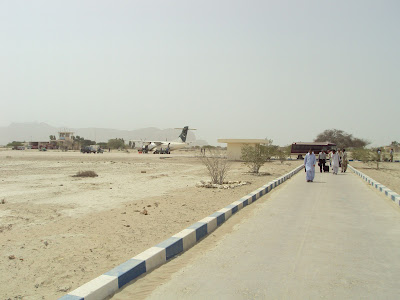One of the sad realities of our time and our nation is that
everything gets politicized here. From personal to social to religious,
everything evokes a political reaction leading to the development of a society
where friends cannot share their feelings and thoughts, where we are scared to
ask friends how they are feeling because of the fear of labels assigned to us.
I am grieved by the silence that surrounds me in the wake of the
video that hurt the feelings of Muslims around the world. I know we are a very
caring nation and I know that we care for our friend’s feelings and reach out
to them when they are hurt. But I did not know that the fear of talk about
religion puts limits our care.
Two things are very evident from the recent events.
Firstly,
non-Muslim Americans do not understand how their Muslim friends and neighbors
feel about Prophet Muhammad (pbuh).
Secondly, those who do understand this relationship, do not
know how to talk about it.
The way Muslims revere the Prophet (pbuh) is very different from
religious icons and personalities in other religions. We do not draw or sketch
him out, we do not have any pictorial or visual images attached to his
personality out of respect. We are taught to be closer to him than our own
souls and loving him is the foundations of Islam. He taught us about the God
that we worship. He taught us about caring for our neighbors and loving our
sisters, daughters, and mothers. He taught us to be compassionate to those who
wrong us. He is the one who gave us our identity in connection with the
creator. He is the reason I struggle to achieve so much every day
and put up a happy face when tough times come. He is the one who taught me to
love all, love that comes from deep inside the heart, and he is the one true
love for millions of us. Our whole belief system rests on our deep love and
faith in him, his character, his word, and his perfection. Loving him deeply
and from the depth of our souls is what we teach our children as they grow up.
He is dearer to me than my mother, father, and my children. Then how am I
supposed to react to a video that attaches a cheap image and dirty voice to
someone revered so deeply by myself and billion Muslims around the world. How
would you feel if someone did that to your mother or spouse or to someone who
is the dearest soul to you?
It hurts, it hurts very bad. It pains me to hear the words and the
debates going on about the video targeting my Prophet (pbuh), I shed tears of
sadness and see several around me doing the same in an effort to cope with the
grief and agony they are experiencing. I hope America understands the kind of
pain Muslims are going through. But even for those that do, it is difficult for
them to talk about it. Unfortunately, religion has been politicized so much in
our country that people are scared to reach out to their Muslim friends and
neighbors and console them. Talking to several Muslim friends, I realized that
no one cared to ask them how this whole situation affected them, they go
through their daily routines burdened with this grief and not being able to
express it. They feel sad, frustrated and depressed. Some feel terrorized with
sealed lips. Others have found ways to express themselves through writing or
talking to family. I am lucky that two of my friends, amongst the hundreds that
I have, did talk to me about it. But I wonder if I would have received the same
response if I was going through a family tragedy involving my parents or
children, probably not. I would have been able to count on my friends and the
healing process would have been easier. Isnt this a sign of broken
communities where everyone is on their own, but this is not true otherwise, then
why do religion makes everything fall apart, why is everyone so scared to touch
the subject.
We want to build communities of love and care for our children,
around all issues and religion is one of them. Religion is personal just like
family and friends, it is only about whom I love and whom I care for, it is what we deeply feel inside, it is what makes us who we are, it is
not politics and does not need to be politicized. I think we lack communication
skills to talk about religion. It is time we start creating forums of dialogue
where dialogue can happen around religion, respectful and open dialogue,
dialogue to help people heal and feel loved and cared for.
After all religion is not politics!











